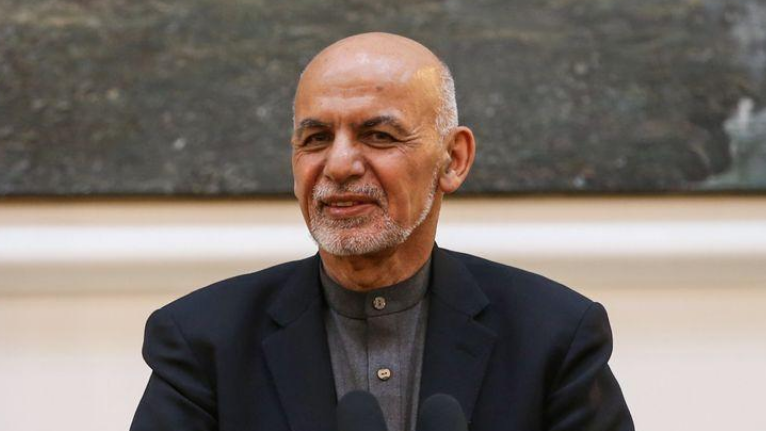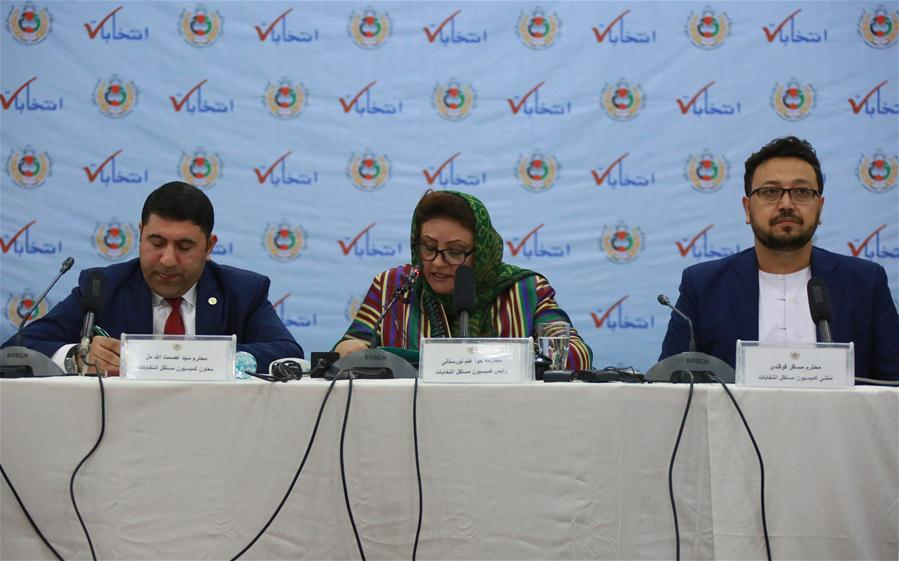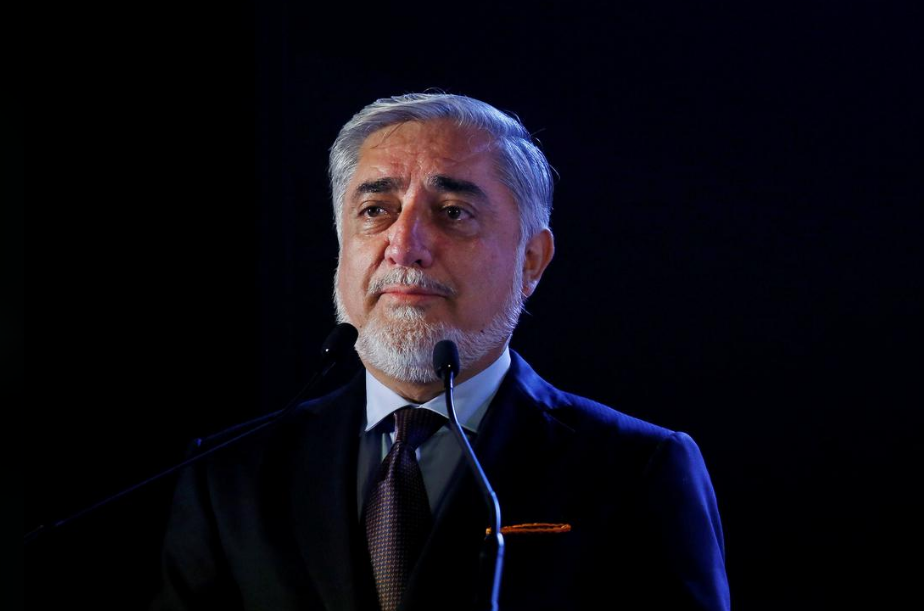00:23

Afghanistan declared incumbent Ashraf Ghani the winner of a disputed presidential election held almost five months ago, a result that could trigger new turmoil amid accusations of fraud and hopes of a possible peace deal with Taliban militants.
Polls were held on September 28 to select a president for the fourth time since U.S.-led forces overthrew the Taliban government in 2001, but the process was marred by allegations of rigging, technical problems with biometric devices used for voting, attacks and other irregularities.
More than 1.9 million out of 9.4 million eligible voters cast their votes.

Chairperson of Afghan Independent Election Commission (IEC) Hawa Alam Nuristani (C) speaks during a press conference in Kabul, Afghanistan, February 18, 2020. /Xinhua
Chairperson of Afghan Independent Election Commission (IEC) Hawa Alam Nuristani (C) speaks during a press conference in Kabul, Afghanistan, February 18, 2020. /Xinhua
Ghani won 50.64 percent of the vote, the Independent Election Commission (IEC) said on Tuesday. Abdullah Abdullah, Ghani's former deputy and main rival, was named runner-up with 39.52 percent.
The IEC announced "preliminary results" in December in which Ghani, a former World Bank official, won re-election by a slim margin, but Abdullah Abdullah dismissed the result as fraudulent and called for a full review. Ghani rejected the allegations.
"We are out of the election process. Neither the institution called IEC has legitimacy in our eyes, nor the result they might announce," the head of Abdullah Abdullah's campaign team, Fazal Ahmad Manawi, said on Twitter just before Tuesday's announcement.
"The reason for this lack of legitimacy is clear to all as much as the sun is. Time will show justice to all of these injustices done."

File photo of Abdullah Abdullah, who speaks at the India-Afghanistan international trade and investment show in Mumbai, India, September 12, 2018. /Reuters
File photo of Abdullah Abdullah, who speaks at the India-Afghanistan international trade and investment show in Mumbai, India, September 12, 2018. /Reuters
The result echoed 2014, when both Ghani and Abdullah Abdullah alleged massive fraud by the other side, forcing the United States to broker an awkward power-sharing arrangement that made Ghani president and Abdullah Abdullah his chief executive.
The relationship has since been marred by distrust and a jostling for power in Kabul.
A potential political crisis looms as the United States and the Taliban near an agreement in Doha, which officials on both sides said could be announced soon if an initial reduction in violence (RIV) is successfully observed.
Afghan acting interior minister said that the RIV would be enforced within five days.
Read more:
Afghan political gridlock threatens peace process
18 years on, is Afghanistan sliding towards civil war?
The agreement is set to pave the way for crucial intra-Afghan talks between the political leadership and the Taliban. The militants have so far refused to talk to the government, which they have dismissed as a U.S. puppet.
Two Western diplomats in Kabul said that the election result was vital.
"It was high time we got the results," one said on condition of anonymity. "All Western powers were deeply invested in the democratic process."
(With input from agencies)